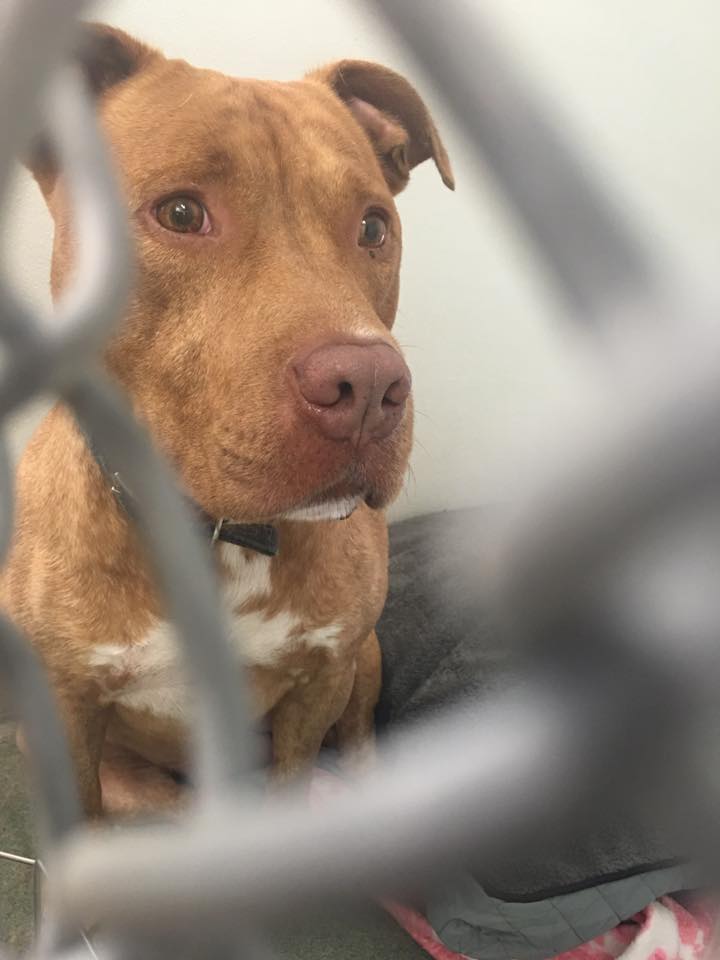Nearly two weeks after Albemarle County seized a pit bull named Niko from the Charlottesville Albemarle SPCA after hours and euthanized him, against his owners’ and the SPCA’s wishes, questions remain about how and why the decision was made. County officials have thus far refused to disclose the location or provide proof of a humane euthanization process.
“No records responsive to this request exist,” reads the county’s response to a FOIA request for any contract with or receipts from a veterinarian related to Niko’s euthanasia, and for the name of the veterinarian and veterinary practice that performed the euthanization.
“This lack of transparency is consistent with what we’ve experienced the entire final stages of this case,” says attorney Elliott Harding, who represented Niko’s owners during a lengthy court battle over the dog’s fate. “It’s unsettling because the narrative that is being delivered by the county should be subject to corroboration in formal records requests such as this.”
The county did not respond to C-VILLE’s second request for corroboration of the euthanization by press time on Tuesday.
C-VILLE Weekly’s FOIA request also asked for written documents exchanged between Albemarle County police and county executives about the dog, as well as emails between the SPCA and county police or leadership. Of the nine total documents provided in response to those two queries, three appeared to contain conversations concerning Niko, including a discussion of a meeting on July 5. That email thread refers to a person who will be present and has the most up-to-date information on the case, but whose name is redacted, with the county citing attorney-client privilege.
One email thread naming Niko begins with a citizen asking, “Why was he murdered in such a cruel and unprofessional manner? Who is responsible?” and was circulated between county officials. Emails between county officials discuss the county’s statement released on July 15, and include a plan to have the county spokesperson be the single point of contact for questions about Niko. C-VILLE’s request for information about other options considered for Niko was responded to with a single document, entirely redacted under attorney-client privilege.
The county did provide a police report describing a neighbor’s complaint that Niko had bitten their dog in 2013.
The Niko saga began in late 2014 when the dog arrived at the Charlottesville Albemarle SPCA by court order after Albemarle County Circuit Court Judge Cheryl Higgins ruled that he had killed a neighbor’s cat, labeled him a “dangerous dog,” and removed him from his owners’ care. Albemarle County General District Court had already attached that label. According to a county press release issued on July 15, the day after the euthanization, Niko had previously injured two other dogs and subsequently injured a third while at the SPCA in 2016.
For the next seven years following the court’s ruling, his owner Toni Stacy fought to save Niko. Harding helped find numerous possible placements and repeatedly asked the county for guidance on desired conditions that would enable the dog’s release.
“We wanted to know what types of special qualities in a rehoming situation they would want to see for Niko,” Harding says. “And we never heard back, at least I didn’t, even when I asked for follow-up.”
In the spring, the Virginia Court of Appeals issued a final disposition in the case. The ruling meant that Albemarle could choose how to “dispose” of Niko. Harding says euthanization is just one of multiple options available under state code for “dangerous dogs,” a less serious label than “vicious.”
“Most of the options all include rehoming him or sending him to some type of qualified organization,” says Harding, adding that euthanasia should be a last resort.
In a July 15 interview, county spokesperson Emily Kilroy said the decision was made by county leadership in the interest of public safety since Niko had a history of biting other animals.
That explanation didn’t satisfy Harding.
“I don’t know whose public they’re concerned about because he could have been sent all the way up to New York if need be,” he said in a July 15 interview. “In fact, there was one organization in northern New York that actually ultimately called us back and said, ‘You know what? We won’t take him because he’s not dangerous enough. We only work with extremely dangerous dogs.’”
Harding said any placement would have come with a liability waiver for the county, and notes that the county is full of other dangerous dogs who, despite their aggression towards other animals, can be kept safely with proper supervision.
The decision to euthanize Niko upset not only Niko’s owners but the SPCA, which issued its own press release.
“The SPCA opposed the decision to euthanize Niko, played no role in that decision, and did not participate in the euthanasia itself,” the statement read.
Harding and one of Niko’s owners, 15-year-old Madelyn Wells, spoke about Niko at the July 20 Albemarle County Board of Supervisors meeting. “In life and living, humane alternatives should be the presumptive outcome of this county and the people in this county and the way they view animals and second chances,” Harding said. “I don’t think the decision and the way that it was implemented last week reflects that.”
Wells, who grew up as the court battle over Niko carried on, told supervisors that the thought of his final moments haunt her.
“It makes me sick to my stomach that he went through that alone,” she said. “I just wanted our dog to live.”
